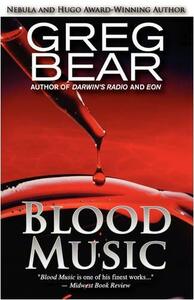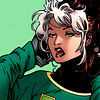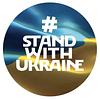Take a photo of a barcode or cover
Greatly enjoyed the premise, although the end was a bit lacking for me.
I've read it a few times and it's a good story.
But 2 things jumped out at me:
"myriad of little live things - bacteria, microbes, "animalcules" - are born and die, not counting for much..........A hundred billion, dying, would not begin to have the same importance as a single human death"
Wow, never mind the human-centric arrogance, without those myriad things, we wouldn't exist.
Ok, it was written in 1983 (the short story), but still, we've learned the importance of say digestive bacteria to our well being, if nothing else.
And Vergil....selects chocolate milk, pineapple, banana pie and cottage cheese as his new "healthy" meal as instructed by his myriad things now in charge...
How quickly SF dates. Sugar, sugar, sugar and bland cheese. Right. Eat no Fat and swap it out for sugar instead. We know this was the mantra back then.
But 2 things jumped out at me:
"myriad of little live things - bacteria, microbes, "animalcules" - are born and die, not counting for much..........A hundred billion, dying, would not begin to have the same importance as a single human death"
Wow, never mind the human-centric arrogance, without those myriad things, we wouldn't exist.
Ok, it was written in 1983 (the short story), but still, we've learned the importance of say digestive bacteria to our well being, if nothing else.
And Vergil....selects chocolate milk, pineapple, banana pie and cottage cheese as his new "healthy" meal as instructed by his myriad things now in charge...
How quickly SF dates. Sugar, sugar, sugar and bland cheese. Right. Eat no Fat and swap it out for sugar instead. We know this was the mantra back then.
Oh god, this was not the book to begin reading during a pandemic. The first third was, quite frankly, terrifying- then the second and third were just kinda slow and dull? Certainly there didn't seem to be much reason for having the 3 characters in the south of the US being included.
Regardless, would not recommend when living in a pandemic. Nope.
Regardless, would not recommend when living in a pandemic. Nope.
Interesting premise - examining the idea of the biological universes within us.
challenging
dark
mysterious
medium-paced
Plot or Character Driven:
Plot
Strong character development:
Complicated
Loveable characters:
Complicated
Diverse cast of characters:
No
Flaws of characters a main focus:
Complicated
The end of civilization, brought about in a completely new way. Quietly yikes.
adventurous
challenging
fast-paced
Plot or Character Driven:
Plot
Strong character development:
Complicated
This is a ‘big idea’ SF novel, published on the height of the initial cyberpunk fame, but looking more at concepts of AI, sentience, singularity from a different angle – biological. I read it as a part of monthly reading for February 2022 at The Evolution of Science Fiction group. The story was first printed in 1985 and was nominated for both Hugo and Nebula the next year, but lost to [b:Ender's Game|375802|Ender's Game (Ender's Saga, #1)|Orson Scott Card|https://i.gr-assets.com/images/S/compressed.photo.goodreads.com/books/1408303130l/375802._SY75_.jpg|2422333] by [a:Orson Scott Card|589|Orson Scott Card|https://images.gr-assets.com/authors/1294099952p2/589.jpg] in both cases. An interesting fact – it was published by Tor, which currently dominates the award ballot for Hugoes and a lot of whose present supporters don’t like Card’s homophobia (which is pretty bad). Moreover, it was the first Nebula-winning Tor book (and maybe Hugo as well).
The story starts with Vergil Ulam. He is a biologist and works at a bio-engineering version of Silicon Valley. They try to create a chip, based not on silicon and electronics, but on a basis of a bio-cell. He is, like cyberpunk heroes, a genius who makes his own simple bio-computers based on his lymphocytes and trains them to become more and more complex. His superiors learned about his ‘side-project’ and ordered him to eliminate it. He disagrees and takes them from the lab by secretly self-injecting them. As time passes he finds out that his body becomes better and better… but what will be his ultimate payout?
At some moment of the plot, there is a possibility of epidemic spread of modified cells and the response of agencies is much more optimistic than our real COVID-19 situation shows. The book is interesting chiefly on account of the suggested way to singularity, but both prose and characters are mostly flat, serving as decorations for the presented ideas.
I have to admit, this was new of my first SF novel read in English in the early 2000s and then I was seriously impressed by it (at that time most foreign SF translations I’ve read were published before 1972, when the USSR joined copyright laws) – definitely a fresh look. Upon the present re-read, I see more issues and weak places but nevertheless, it is a nice yawn.
The story starts with Vergil Ulam. He is a biologist and works at a bio-engineering version of Silicon Valley. They try to create a chip, based not on silicon and electronics, but on a basis of a bio-cell. He is, like cyberpunk heroes, a genius who makes his own simple bio-computers based on his lymphocytes and trains them to become more and more complex. His superiors learned about his ‘side-project’ and ordered him to eliminate it. He disagrees and takes them from the lab by secretly self-injecting them. As time passes he finds out that his body becomes better and better… but what will be his ultimate payout?
At some moment of the plot, there is a possibility of epidemic spread of modified cells and the response of agencies is much more optimistic than our real COVID-19 situation shows. The book is interesting chiefly on account of the suggested way to singularity, but both prose and characters are mostly flat, serving as decorations for the presented ideas.
I have to admit, this was new of my first SF novel read in English in the early 2000s and then I was seriously impressed by it (at that time most foreign SF translations I’ve read were published before 1972, when the USSR joined copyright laws) – definitely a fresh look. Upon the present re-read, I see more issues and weak places but nevertheless, it is a nice yawn.
It started very well, with a most intriguing premise.
Though as soon as I made the link to a My Little Pony fanfic that I read a long time ago (shut up), it started to lose it's appeal. Then the ending was completely anticlimatic.
Friendship is Optimal was so much better for me, and was, unfortunately, a constant comparison point.
It was still a fun ride, barring the ending, so 4 stars.
Though as soon as I made the link to a My Little Pony fanfic that I read a long time ago (shut up), it started to lose it's appeal. Then the ending was completely anticlimatic.
Friendship is Optimal was so much better for me, and was, unfortunately, a constant comparison point.
It was still a fun ride, barring the ending, so 4 stars.





